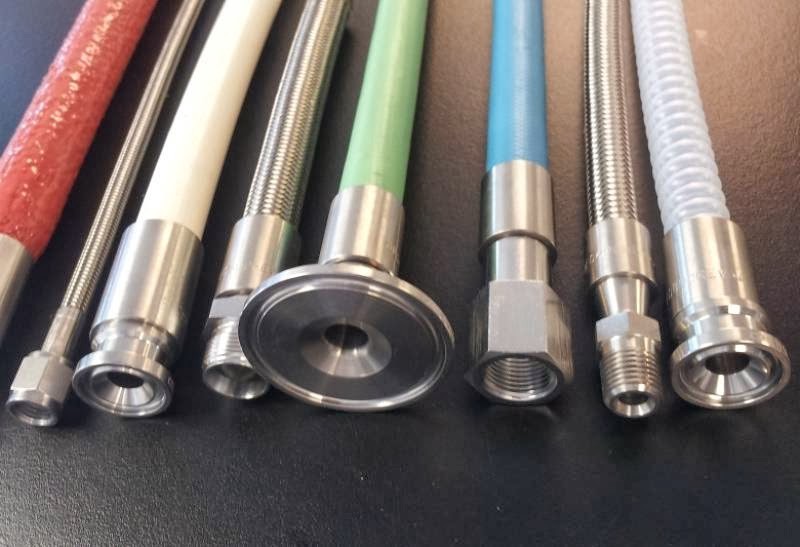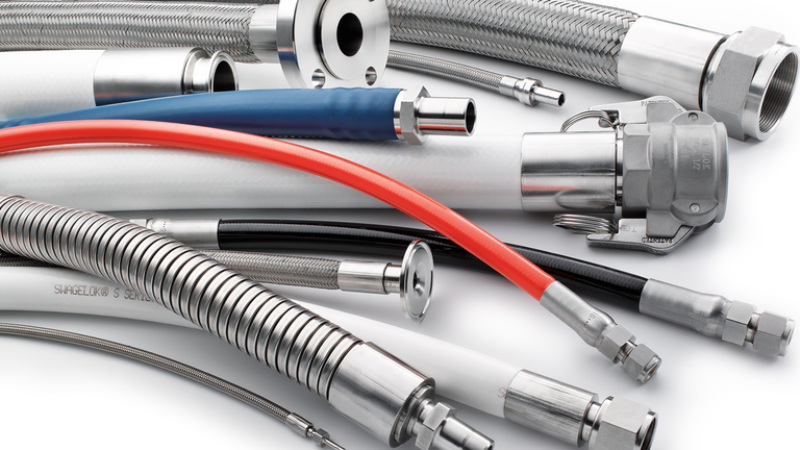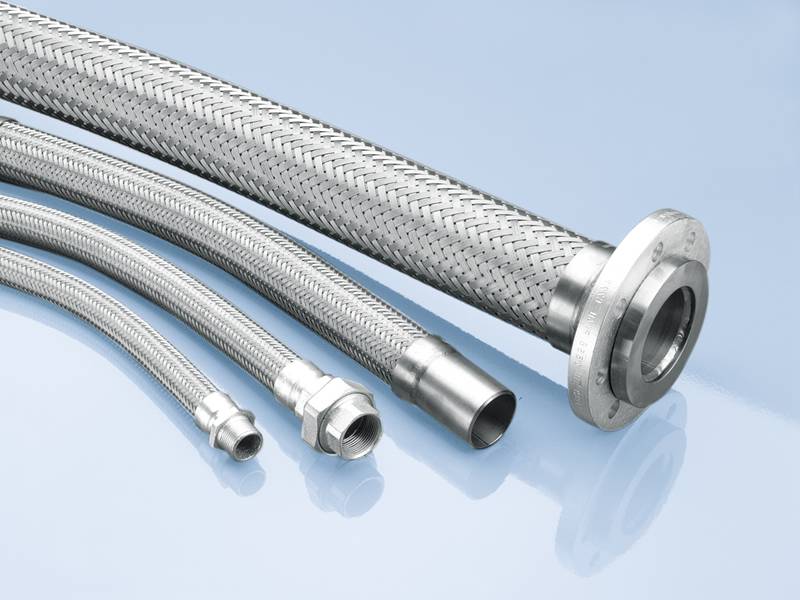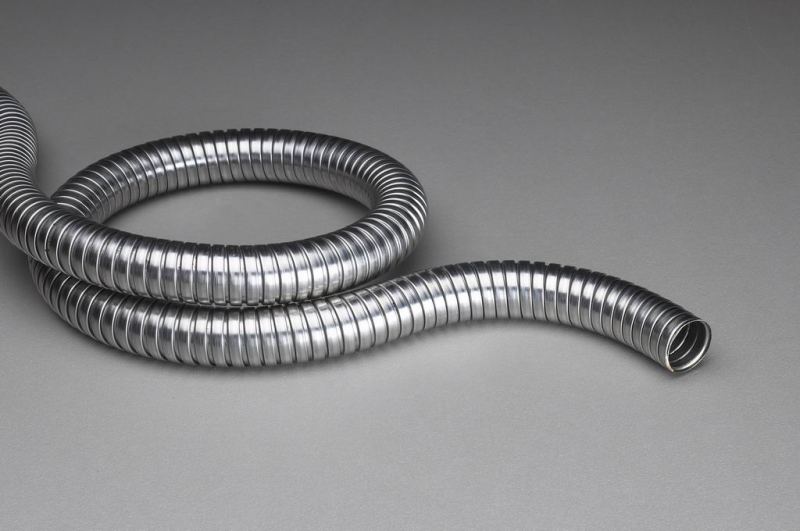Flexible metal hoses are used in industries that range from aerospace to deep-sea. They vary in composition so that they can be custom-fit for many purposes. Making sure that you select the correct manufacturer will also help to determine how long your hoses will last because they are not all made the same way.
The Difference in the Manufacturing Process
Even though the right metals may be best-suited for the purpose, the manufacturing process will largely determine how long a flexible metal hose will last. Many manufacturers aim to keep their costs low, resulting in poorer quality and a shorter life-span.
When welding the end fitting to the metal hose, the flange is often much thicker than the hose, leaving a less than perfect fit. When welding it together, there is little further preparation. It also means that there is not going to be full penetration into the fitting, creating a potential weak point in the hose. Adding too much heat to the thinner hose when welding it together with a much thicker flange, means that it could put a hole in it if excessive heat is applied.
At Aero-flex, an additional step is used to thin the thickness of the end fitting, enabling the hose to fit snugly into it. This creates a much stronger connection point, which also makes the hose able to last much longer. It also enables a better weld and removes the weak point.
The welding used at Aero-flex also follows a different process. What often happens when cleaning the welds is that other companies will often lightly cleanse the welds using only soap and water. This is not a strong enough solution to remove harmful chemicals in the weld. The result is that the weld can rust within just a few hours or days.
The process Aero-flex follows is to clean it several times as it is made. It is cleaned when getting it ready to weld, after welding, and then once again after the hose is pressure tested. This is necessary because during the welding process some impurities – carbon – will rise to the surface as it cools. A pickling process is used that removes the carbon and other materials that will lead to the quick formation of rust.
Types of Hoses

Hoses have to be made to fit the application. They are made of different metals and the metal must be selected according to the use intended. Your application may need to consider the types of chemicals you want to use them to transport and the temperature range. It also needs you to decide if you need them to be used for a vacuum, or if abrasion will be a concern. When used in areas where high amounts of vibration are expected and you need to help reduce the potential damage, it will affect the type of flexible metal hose you should use.
- Flexible Steam Hoses
When you need to transport steam, you can get flexible metal hoses from Aero-flex for it. Custom hoses for steam can be made that range in size from 1/4″ ID up to 2″ ID. These hoses can handle high temperatures up to 1,200℉ and as low as -300℉. The maximum allowable working pressure (MAWP) is at 70℉. They are also suitable for pressures that range from 530 psi up to 2,500 psi. They can be made in any length to suit your needs.
- Air Hoses
Aero-flex also makes air hoses that can be used for high-pressure air. These hoses have the same temperature ranges and limits as the steam hoses. They are also made in the same sizes and have the same pressure ranges.
Common Hose Uses
Besides being the right hoses for air and steam, our flexible metal hoses are excellent for transporting a wide variety of substances. Our standard hoses can be used with ethanol, isopropyl alcohol, liquid ammonia, acetone, carbon dioxide, mineral spirits, mineral oil, liquid propane, sodium hydroxide, vegetable oil, and toluene.
Some substances will not work well in the standard hoses. It is not recommended that you use them to transport chemicals such as hydrochloric acid, phosphoric acid, sulfuric acid, chlorine, hydrogen peroxide, or liquid pentane.
Hose Materials

Each hose is typically made of certain materials unless they are custom-ordered. The flexible hose is made of 321SS. This metal gives it a high degree of corrosion resistance, excellent ductility and resistance to stress fractures and it is better for higher temperatures. It is also excellent because it develops less carbon during welding, which enables it to be more resistant to corrosion. The braid on the hose is made of a single layer of braid, consisting of 304SS.
Alloys
When you need hoses made of different grades of steel or alloys for a special purpose, Aero-flex can provide them for you. It is important that you indicate the type of chemicals you want to run through the hoses, the temperature involved, the pressure or vacuum it will need to be able to withstand, and how much vibration or bending it must endure. Once this information is understood, along with the precise measurements needed, the hoses can be made for you. You also need to reveal where to ship it and how.
When hoses are to be used in aerospace applications, some special requirements need to be met. Even though the materials and connections appear to be about the same, there are differences in the material and the thread. The correct thread has a higher tolerance, which increases the fatigue strength by as much as 40%.
When you need end connections for aerospace purposes, Aero-flex can produce them for you. Many times off the shelf fittings are all you need. Just let us know the exact aerospace fitting specification or send us a drawing with the details.
Advantages of Flexible Metal Hose
Choosing to use a flexible metal hose over a rigid pipe can give you several worthwhile advantages. They are lighter in weight than a rigid pipe and they easily adjust to various types of alignment, reducing the need for exact measurements and multiple pipe cutting. Because of the braiding, they are also very strong and provide excellent corrosion resistance. Flexible metal hoses can endure high or low temperatures. They help to compensate when machinery or equipment is moving or vibrating, and they help to absorb vibration.
End Fittings
The standard flexible metal hoses come with standard end fittings or flanges. These can be changed to meet your specific requirements. When desired, threaded end connections of various types, including a male or female NPT, a male or female JIC 37 flare, or an O-ring face seal can be added.
Flanges are available in many styles to be able to fit your specific machine or application. They are generally used when hoses are larger than 2″ in diameter. Most often, flanges are off the shelf ANSI B16.5, and they include slip on, blind, weld neck, socket weld, lap joint, and threaded flanges. They are usually made of 304SS, 316lSS, and 321SS. Special alloy flanges can be made when needed.
Pressure Limits
Smaller hoses can handle higher pressures than larger diameter hoses. Adding a steel braid to the hose strengthens it to allow it to handle much higher pressures. Putting a second layer of braided steel on the hose enables it to handle much higher pressure.
Pressure limits are reduced as the temperature increases. When temperatures are higher than 300℉, it significantly starts to reduce the amount of pressure the hose can handle safely.
Protection for Flexible Hoses

When flexible metal hoses need to be protected from various conditions, Aero-flex makes two kinds. One type is an interlocked hose. This one is a spiral and made of metal. It can be used on the outside to protect the flexible hose from abrasion, such as when the hose might be dragged; or, it can be placed inside the hose to help provide a smooth flow of material.
The other type of protection is a silicon rubber hose that goes on the outside of your flexible metal hose. It protects from heat and fire. It can protect the flexible hose up to 500℉ continuously or from a splash of material that is up to 2200℉. It can also help to prevent heat loss from the flexible hose or protect employees from burns if they bump against it when hot or extremely cold.
Flexible metal hoses have a wide variety of field applications. They are ideal in many industries and help to keep it going. Some of the industries include aerospace, oil refining, gas power turbines, chemical transfer, dry bulk transfer, steel production, petrochemical, and more. All manufactured hoses are made to precise specifications and are certified to AS9100D & ISO9001:2015.






